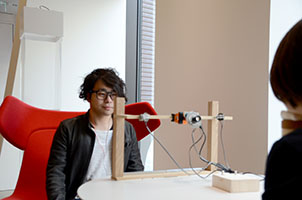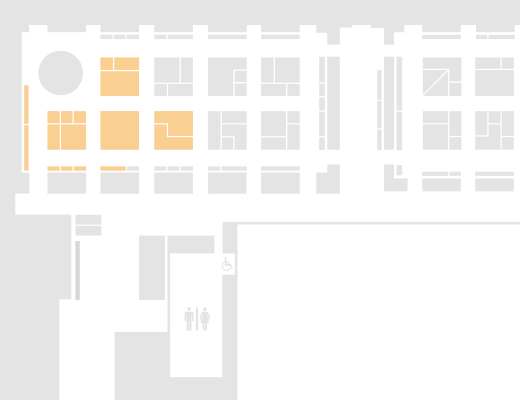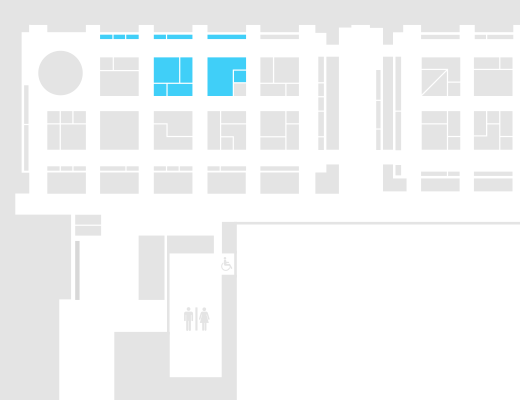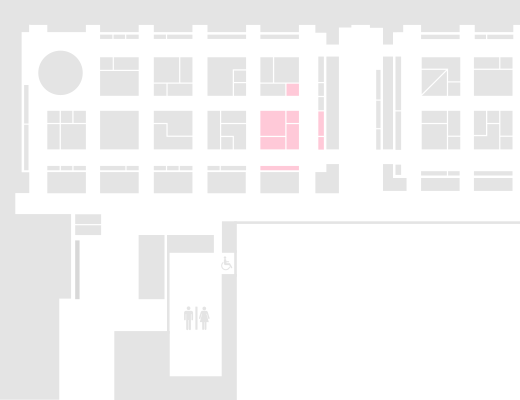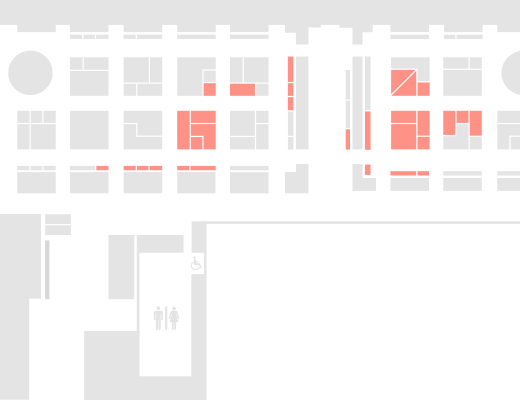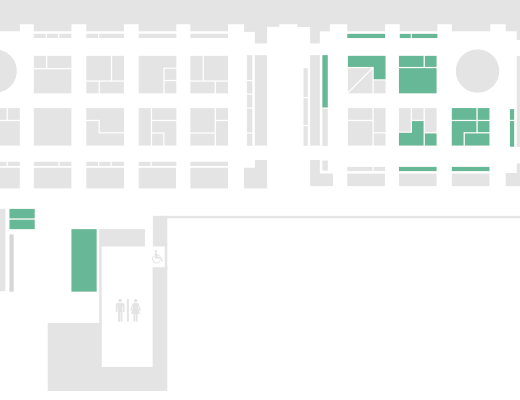
 Open List
Open List
 Close List
Close List
- Keio International Center for the Internet and Society
- Fumio Shimpo Laboratory
- Takashi Iba Laboratory
- Ko Shikata and His Friends
- Kazunori Takashio Laboratory
- Auto-ID Laboratory
- DTP / Jin Mitsugi Laboratory
- Keiji Takeda Laboratory
- SFC HACK
- The Project for Knowledge Discovery from Big Data Analysis
- Jin Nakazawa Laboratory
- Tokuda, Takashio and Nakazawa Laboratory
- Global Environmental System Leaders (GESL) Course
- Yasushi Kiyoki Laboratory
- Shuichi Kurabayashi Laboratory
- Learning Design Project
- Internet Research Laboratory
- Internet and Society Laboratory
- World Wide Web Consortium (W3C)
Keio International Center for the Internet and Society
KICIS: Keio International Center for the Internet and Society was founded to connect and communicate on a global scale with academia and research institutes around the world about the role of Japan in the expansion of Internet technology and policy. At this booth, KICIS will introduce a website for a new gateway for Japan’s Internet and Society, and will report the following KICIS activities in 2013: NoC Project Meeting at Harvard University (Dec, 2012), The International Forum for Cloud Computing and Big Data (May, 2013), AprIGF in Seoul (Sep, 2013) and IGF Annual Meeting in Bali (Oct, 2013).
(Person in Charge of the Project: Jim Foster)

Interactive Research of Cyber Law
In cyber law project, to salve the general issue of the internet society, we are studying the internet society from the standpoint of law and policy by finding and analyzing the problem and coming up with a political or a legal solution. We also discuss and plan “How to boost the use of internet” from many viewpoint, such as education and technology. Our objective is to boost the use of internet to create the better tomorrow.
(Person in Charge of the Project: Fumio Shimpo)
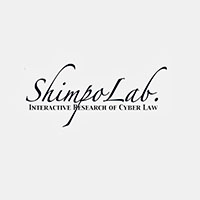
A Passport for the Creative Society: Designing Your Learning and Growth
To achieve a society where we each create the future with our own hands, the Takashi Iba Laboratory is creating Pattern Languages to support the creative processes in people. In this exhibition, we will be showing a system for using pattern languages to help people gain growth. By having hands-on interaction with the system, you will get a chance to gain a retrospective of your own learning. The system will give you new findings on your learning habits, so don’t miss the chance. We will also present a new pattern language for educators on supporting a new teaching style focused on cultivating creativity in the students. Please stop by for an insight on how education and learning should be, and get a chance rethink your learning style.
(Person in Charge of the Project: Takashi Iba)
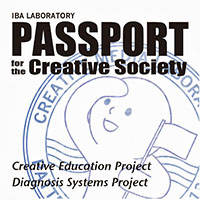
Volunteer Activities for Cyberspace Safety
There are various kinds of threats in the cyberspace. Although government ministries and many specialists are tackling with these threats, we can find increasing importance of volunteers working for support and education for vulnerable common users who cannot protect themselves. Our volunteer activities are targeted at education for high school students through case studies letting them think how to protect themselves from cybercrimes.
(Person in Charge of the Project: Yosuke Itani)
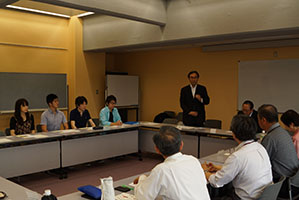
Introduction of the Case-study in Information Education for Purpose of Improvement of Crisis-management Skills (the Case of "Tokyo University of Agriculture 1st Junior High School")
Our report indicates detail of introduction of the ‘Case-Study’ in information education for purpose of improvement of crisis-management skills.
These days, youth faces dangerous situations on Internet since the incidents and crimes have increased in invisible environment for parents or schools. So it is expected that youth can learn crisis-management skills to protect by themselves.
Then we devised the idea of workshop that provide opportunity to exercise Problem-Solving for junior-high school students with refer to real case of youth incidents on the Internet. In particular, this activity is the first thing in Japan. (We don’t know the same ones in outside of Japan.)
(Person in Charge of the Project: Yosuke Itani)
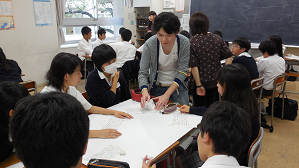
Achievements and Practice of Cyber Patrol
Our report indicates detail of practice of Cyber Patrol and its achievements. Cyber Patrol mean the same activities as ones in real community (ex. citizen volunteer for patrolling during night).
These days, young people has become to use internet with new service (Social Networking Services etc…). We tried to find much illegal information (illegal deals, frauds or attractants) to report to ‘Internet Hotline Center’ to protect safety on internet.
(Person in Charge of the Project: Yosuke Itani)
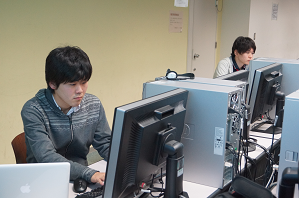
Ecom: Communication Support System for Event Organizer
Communication modes among event organizers is dynamically changed from moment to moment while they operates the events. Since various kinds of the communication cannot be supported by single communication tool such as phone, e-mail or walkie talkie, event organizers have to combine these tools by themselves. Thus, it is necessary to create a new communication tool which supports various kinds of communications for event organizers. In this exhibition, we analyze and model of communication in organizing events, and present the new communication platform.
(Person in Charge of the Project: Ayaka Yagi)
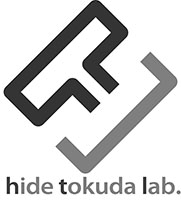
Supply Chain Visibility System with Sensors and Cloud Computing
The advent of massive and high speed electronic commerce on Internet demands accurate track and trace of locations and dispositions of objects. The combination of sensors, automatic identification and cloud computing are the essential technology for the information sharing for objects. Elemental technologies and a working supply chain visibility system are introduced.
(Person in Charge of the Project: Jin Mitsugi)
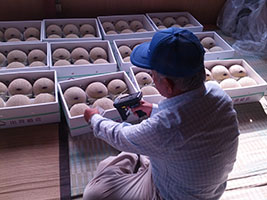
Shopping Experiences with Smart Devices
Tablet POS and smartphone checkout change our shopping experience. We can check the inventory in the store front. Payment can be done with smartphone. No risk of credit card skimming. You don’t have to carry all the cards anymore. DTP and SFC jointly demonstrate such future shopping experiences.
(Person in Charge of the Project: Jin Mitsugi)

Present State of Cyber Security
Cyber security is becoming extremely diverse and sophisticated these days. Since cyber security should be recognized more by the public and not only by technicians, we set up an interactive exhibit to evoke the importance of this topic.
(Person in Charge of the Project: Keiji Takeda)

Upgrading Cybercrime
Our interactive exhibit will introduce the methodology of cybercrimes, a field that is rapidly becoming sophisticated. For example, can you tell the difference between a phishing website and a legitimate one? Take a look at actual samples to feel the complexity and dangerousness of cybercrimes.
(Person in Charge of the Project: Keiji Takeda)

Web Design Engineering
Due to the diversification of computer terminals, more universality is being required in the field of web design. In order to achieve an optimum environment for different terminals, we must take into account several elements such as the wire frame, color scheme, button shape, etc.
(Person in Charge of the Project: Keiji Takeda)

Construction of Open Data for Students
To maximize the convenience of campus life, the Keio University Shonan Fujisawa Campus employs an original system separate from other campuses. However, there has been no focus on utilizing such electronic data in order to improve the campus environment. Our approach is to set up and publish university-related Open Data that is available to all students.
(Person in Charge of the Project: Keiji Takeda)

Knowledge Discovery from Big Data
Through big data analysis, a method rapidly developing in recent years, one can extract and visualize hidden information that is usually unnoticed. We aim to spread the usefulness of big data analysis by publishing these results on the web.
(Person in Charge of the Project: Keiji Takeda)

Construction of Big Data Analysis Infrastructure
Although big data analysis is becoming increasingly important, there is a barrier for researchers since its platform is not fully established yet. We wish to spread the significance of setting up such groundwork so that utilizing big data analysis becomes easier.
(Person in Charge of the Project: Keiji Takeda)

An Infrastructure for Heterogeneous Sensing Data Collection
In our social infrastructure, there are variety of sensing mechanisms, such as environmental sensors, traffic sensors, surveillance cameras, and so forth. These mechanisms are what we call Hard Sensors. In addition, Soft Sensors, Twitter analyzer, for example, have been emerging as an important source of information to know human movement, mind, etc. In this project, we are aiming at developing an infrastructural system that collects streams of data from the variety of sensing mechanisms, and makes them available to applications for information analysis and sharing.
(Person in Charge of the Project: Jin Nakazawa)

ClouT: Cloud of Things for Empowering the Citizen Clout in Smart Cities
Cities have been experiencing emerging challenges such as efficient energy management, economic growth and development, security and quality of life of its habitants. ClouT’s overall concept is leveraging the Cloud Computing as an enabler to bridge the Internet of Things with Internet of People via Internet of Services, to establish an efficient communication and collaboration platform exploiting all possible information sources to make the cities smarter. ClouT will help cities to provide their infrastructures as services (City infrastructure as a service, CIaaS) that can be reused by different platforms and service providers. ClouT with its user-centric approach, will also offer to end-users the possibility of creating their own Cloud services and share them with four other citizens.
(Person in Charge of the Project: Takuro Yonezawa)

FRAGWRAP: Fragrance-Encapsulated and Projected Soap Bubble for Scent Mapping
This project proposes FRAGWRAP which maps scent to real objects in real-time. To achieve this purpose, we leverage fragrance-encapsulated soap bubble with projection mapping technique. Since human olfaction is known as combined utilization of his/her eyes and nose, we encapsulate fragrance into soap bubble to stimulate the nose and also project 3D image of the fragrance to the soap bubble in real-time. In this video, we present our first prototype which automatically inserts fragrance into a soap bubble and also projects images to the moving bubble. All system is activated by speech recognition.
(Person in Charge of the Project: Yuutaro Kyouno)
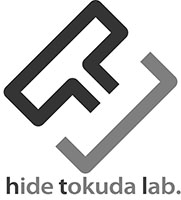
EverCopter: Continuous and Adaptive Over-the-Air Sensing with Detachable Wired Flying Objects
EverCopter provides dynamically rechargeable flying objects. It achieves both long sensing time and wide sensing coverage by the following two features. First, multiple EverCopters can be tied in a row by power supply cables. Since the root EverCopter in a row is connected to power supply on the station, each EverCopter can fly without battery. Second, the terminal EverCopter can detach itself from the row in order to enjoy wider sensing coverage. An EverCopter, while it is detached, runs with its own battery-supplied energy. When the remaining energy becomes low, it flies back to the row to recharge the battery.
(Person in Charge of the Project: Yuutaro Kyouno)

Cyber Physical Space Project
In recent years, due to the prevalence of social networking and due to downsizing and technological advance of mobile phone, many people came to post their information to cyber space. It makes the connection between cyber space and physical space stronger than before. Therefore, we can presume what is happening in physical space by reading the context of cyber space properly. In this exhibition, we propose the technique for the information mapping and cooperation between cyber space and physical space.
(Person in Charge of the Project: Masamiki Ogawa)

The Next Generation of User Centric Life-log Platform
We can detect and log our various event in our daily life by using wearable devices and life-log services. However, logged data in various services are often not available for another services, since the logged service maintain their data in closed fashion. In this demo, we propose the next generation of life-log platform that can store various contexts in the same space for different types of life-log services. It can provide the data for various applications such as medical care and social survey services.
(Person in Charge of the Project: Yuuki Nishiyama)

Privacy-aware Data Collection Algorithm in Participatory Sensing Applications
With the spread of mobile devices, which are equipped with GPS and various sensors, much attention has been paid to participatory sensing applications. These applications analyze and share location data, environmental data and user information obtained from a large number of mobile devices. However, if user privacy is violated, these applications would not be used widely. In order to solve this problem, we propose a privacy-aware data collection algorithm in participatory sensing applications.
(Person in Charge of the Project: Shoko Minagawa)

Something You Can Sense over There - Adaptive Participatory Sensing with "Human as a Sensor" Approach
Next generation sensor network that features (1) “Human as a Sensor” approach where human user takes on a role of sensor for high level information, such as subjective feeling for temperature or crowdedness, and (2) “Participatory Sensing” where user participates sensing based on shared sensing needs.
(Person in Charge of the Project: Tadashi Ookoshi)

Internet of Things and Fog Computing
The Internet of Things, a network of objects around us, produces rich set of information that can be leveraged to know human activity and space status. This research aims at developing a model and a system that stand between the local and the cloud in the network, which is called “fog”. We demonstrate the Virtual Sensor Network architecture, which is the enabling technology that binds the things in the network to the fog computing model.
(Person in Charge of the Project: Jin Nakazawa)

Virtualization and Storage Technique for Open Data
National/local governments have been making their ranging data, such as environmental sensing data and statistical data, open to the public via the Internet in a variety of different formats. Applications that needs to process these data are required to acquire them from the Internet specifying their interests with, for example, data type, location and time. To cope with this problem, we propose the notion of virtual sensors that can present the data to the Internet as sensor streams. Since virtual sensors can be associated with location information, applications can flexibly find/discover data from the network.
(Person in Charge of the Project: Jin Nakazawa)

Detection and Classification of Social Event in Smart Cities
According to increase number of citizens in city area, creating various services such as navigation, recommendation and effectiveness are required by detecting various social events in city area. In this research, we present a system which detects and classifies social events by analyzing various data which are posted to social network and social graph. In addition, we evaluate effectiveness of our system by presenting a user interface which presents detected various events.
(Person in Charge of the Project: Takuro Yonezawa)

The Techniques and Applications for Interaction with Public Displays
In recent years, the public displays which we can control is emerging. These displays can provide much richer contents than existing digital displays. However, we need to understand the people’s mental model about public displays to build easy and intuitive interaction. In this exhibition, we set up the prototype of the interactive public display based on study from previous work.
(Person in Charge of the Project: Masamiki Ogawa)

Global Environmental System Leaders (GESL) Course
GESL course produces graduates who are able to discover and analyze global environmental changes and create global environmental systems in response to these changes. This accomplished by integrating the hardware technology that monitors and controls the “real environmental space”, which is the environmental in the real world, and the technology that connects the “information environmental space”, which quantifies the causes an effects of environmental changes, together with rules.
(Person in Charge of the Project: Yasushi Kiyoki)
URL: http://gesl.sfc.keio.ac.jp

Multi Media Database and Data Mining System Design and its Application
This research project is to create the meta level knowledge base system for story-based active media data. This system realizes the comparison of the semantic, emotional and temporal feature relationship. The most significant features of this project are following: 1) The automatic metadata analyzer, 2) The knowledge expression function by different kind of media integration, 3) The active delivery function for the integrated media data.
(Person in Charge of the Project: Yasushi Kiyoki)
URL: http://www.mdbl.sfc.keio.ac.jp/
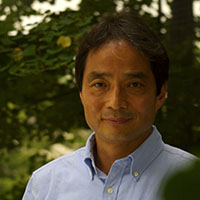
5D World Map System
The objective of this research is to dynamically visualize patterns of historical/cultural/environmental from a user-selected point-of-view.
This system utilizes four spatio-temporal dimensions, plus one semantic-relations/human imagination dimension influenced by word-and-color-analysis of contextually related images. The main functions of this system are: (1) Context-based Multimedia Retrieval Functions with Semantic Analyzers, (2) Context-based Query Creation Functions with Color Analyzers, and (3) Spatio-temporal Visualization functions with time-series multi-geographical views.
(Person in Charge of the Project: Yasushi Kiyoki)
URL: http://www.mdbl.sfc.keio.ac.jp/

JR East - Keio SFC Joint Research Project: The Development of Passenger-flow Analysis Platform Using Railway Usage Information
This project focuses on the implementation of a passenger-flow analysis platform based on actual railway-usage data. This project applies multimedia-database technology and spatio-temporal data mining technologies to analyze passenger-flow and route histories. A concrete application of this technology is passenger-flow-based digital advertisement selection and placement optimization-technologies.
(Person in Charge of the Project: Yasushi Kiyoki)
URL: http://www.mdbl.sfc.keio.ac.jp/

IMELab
The purpose of this project is intended for time-series media data such as video or audio data whose contents change with time and ultimately to build a contents distribution infrastructure which performs active/automatic database retrieval invocation/information delivery. Such a performance configures to execute automatic extraction of Kansei metadata associated with the contents of the time-series metadata and Kansei measurement processing associated with desires or interests of users. To achieve contents distribution from a completely new viewpoint called “Kansei” (intuitive and affective), this project is developing a “Kansei time-series media hub mechanism” for video and audio data.
(Person in Charge of the Project: Shuichi Kurabayashi)
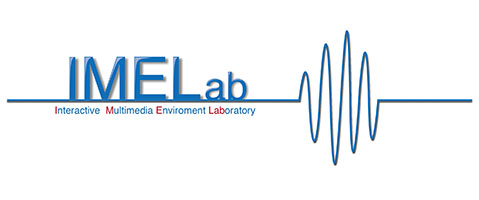
Design for Learning
The Learning Design Project (LDP) develops original tools for Informal Learning using ICT (PC, iPhone, iPad, etc.) based on demands from actual situations of learners in SFC. This year, we especially introduce learning tools for foreign languages, history and other general subjects. We also present a study on the potentials of ubiquitous language learning environments using smartphones, which detect the learners’ location and supply them with multimedia content that matches the situation they might be in. We would like to invite you to try out our products, which are in the forefront of Informal Learning.
(Person in Charge of the Project: Ikumi Waragai)
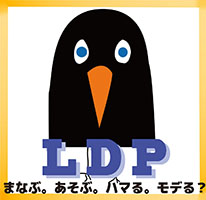
Asian Satellite Internet and Distance Education Project
The Asian Internet Interconnection Initiatives (AI3) Project and SOI ASIA Project utilizes satellite based Internet to provide Internet environments in a less expensive, easy to deploy, and more feasible way for the universities located in the regions where Internet environments are insufficiently developed; conducts research and development of the networking and other technologies and employ them for IT human resource development in Asia while using the environments; and proposes, through field experiments, a new educational methodology for universities in Japan as well as educational institutions abroad.
(Person in Charge of the Project: Jun Murai)
URL: http://www.sfc.wide.ad.jp/IRL/
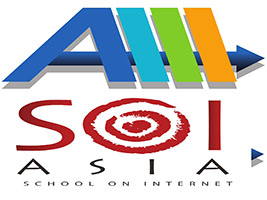
ALL-IP Computing
All-IP Computing starts from a very simple premise: the Internet Protocol (IP) is the only communications mechanism you need. From this idea flows research in three areas:
* Chip Level Interconnects using IP
* Planetary-Scale Dynamic Systems
* Human-Centric Computing
(Person in Charge of the Project: Yudai Yamagishi)
URL: http://www.sfc.wide.ad.jp/arch/
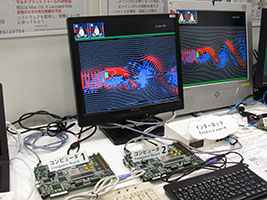
Advanced Quantum Architecture
The AQUA group is researching system organizations, circuit structures and algorithms to accelerate the development of large-scale quantum computers. Our mission is to bridge the gap between theoretical algorithms and real-world experiments to accelerate the deployment of useful quantum information technology. Our idiom is distributed quantum computing systems.
(Person in Charge of the Project: Rodney D. Van Meter)
URL: http://aqua.sfc.wide.ad.jp/

Scanning the Earth Project
This research project uses a sensor platform of both stationary and mobile sensors to monitor the air around human populations, then share that information via communication technologies. It also develops data interpolation and visualization techniques to provide comprehensive information over time. Specifically, the project employs both fixed and bicycle-mounted geiger counters to create a platform for continual radiation measurement. The collected information is transmitted via the internet to servers and made public via a web. Finally, the project aims to simultaneously analyze readings and create visualizations of the data to spread information on environmental conditions via a portal site.
(Person in Charge of the Project: Jun Murai)
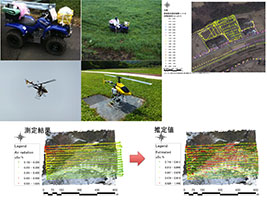
World Wide Web Consortium (W3C)
The Open Web Platform (OWP) is now widely recognize as the premiere solution for cross-device and cross-platform development. The growing W3C community is well-positioned to guide the next wave of technology development and to take a leadership role in extending the Open Web Platform to new industries.
(Person in Charge of the Project: Jun Murai)
URL: http://www.w3.org/

 Open List
Open List
 Close List
Close List
- Atsushi Aoyama Laboratory
- Kiyoka Nozue Laboratory
- Sachiko Mori Laboratory
- Takashi Iba Laboratory
- Masaki Suwa Laboratory
- Human Performance Laboratory
- Life Knowledge in Practice
- Inter-professional Education Program for Primary Health Care in Laos Keio University
- Mitsuhiro Watanabe Study Group
- SFC BIO
- “Karadakan” Cancer Information Station
- The Tsuruoka Metabolomic Cohort Study
- Health Communication Research Laboratory
- Sports Dynamics and Informatics Laboratory
Measurement of the 'Brain'
A recent advance in various types of non-invasive brain measurement techniques has enabled us to objectively investigate human brain functions. In our laboratory, we are conducting basic neuroscience research on measurement and analysis of brain information, aiming at applying the obtained knowledge to the fields of brain information communication, medical and welfare, and so on. We will present our studies regarding perception, emotion and cognition, mainly as measured by magnetoencephalography (MEG).
(Person in Charge of the Project: Atsushi Aoyama)
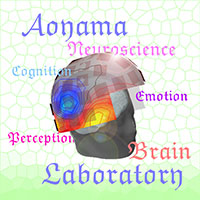
The Role and Function of the Advanced Practice Nurse
Certified nurse specialist in JAPAN is the nurses who are certified and nurses with “outstanding ability on nursing practice” certainly in the field of nursing. The certified nurse specialist contributes to improvement of the quality of the nursing care and for improvement of health and the medical treatment quality of life of a person targeted for care. In this study, we compare the present conditions of role and function with Japanese certified nurse specialist and the United States clinical nurse it including a training experience in American MAYO CLINIC.
(Person in Charge of the Project: Kiyoka Nozue)

With a Key Word Such as Elderly People, Psychology and Community
In Sachiko Mori Laboratory, each member has been conducting an actual-experience-based study from one’s point of view, with a key word such as elderly people, psychology and community. In Open Research Forum, we want to share what we have learned from our experience with everyone who joins us, expressing in our own words. Also, we hope to deepen our researches through mutual exchanges which would take place at the Forum.
(Person in Charge of the Project: Motohiko Eto)
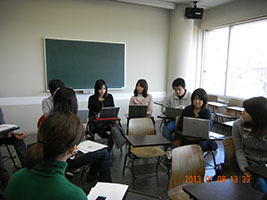
A Passport for the Creative Society: Think Fast - Act Quickly
To achieve a society where we each create the future with our own hands, the Takashi Iba Laboratory is creating Pattern Languages to support the creative processes in people. This exhibition will show ways of scribing out and transferring embodied practical knowledge between people. We will present a pattern language for earthquake survival, showing ways of inheriting knowledge of survival from the many earthquake disasters from the past in Japan. We will also be exhibiting 2 more new pattern languages providing insights for fun conversations and good ways of interacting with people.
(Person in Charge of the Project: Takashi Iba)
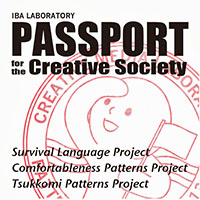
TETSUJIN - Neighbor's Philosophy of Life -
We are trying to design a local community in Kessennuma City, Miyagi and Shonandai, Fujisawa City, Kanagawa. By interviewing for some of the people in Kesennuma/Shonandai about their philosophy of life, and making postcards documented in, we have designed the environment of embodied meta-cognitionamong the people in Kesennuma/Shonandai to make them be awake of their tacitthoughts and hopes of the development for a year and a half.
(Person in Charge of the Project: Haruka Nukariya)
URL: http://metacog.jp/tetsujin/
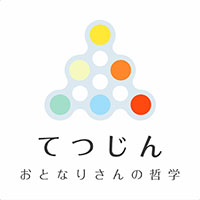
Measure the People to Know the People - Ergonomics -
Using experiments to verify human behavior or the ease of use of items, etc., under a variety of environments allows for presentation of improvements that can be made on various levels of environments accommodating humans. Specifically, evaluating web usability through an eye camera or impression evaluation methods, or analyzing consumer behavior can provide an understanding of human physical, psychological and physiological characteristics in the hope of bringing greater harmony between people and the environment. Fruits of our research include design of websites that are easier to understand and product packaging designs.
(Person in Charge of the Project: Ran Mizutani)
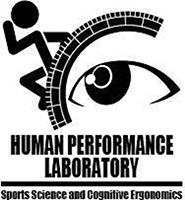
Measure the People to Know the People - Sports Science -
We use ergonomics methods to evaluate athletes’ thus far unknown skillful techniques or knack of performing. Specifically, this involves using a motion analyzer or eye camera to measure a competing athlete’s eyeballs or physical movements, and then conduct an investigation of the athlete’s psychological characteristics through a variety of psychological tests. The results of our research have been used to evaluate athletes’ performances or to propose new training methods.
(Person in Charge of the Project: Masaaki Tsukamoto)

Practical Knowledge in FabLabKamakura
Knowledge is attractive when it is gained inside a field. FabLabKamakura, located in Kamakura, is a workshop studio with the most advanced technology of personal fabricating, such as a 3D printer and a laser cutter. They organize workshops and do their business, aiming to establish a culture that anyone can participate in “Fabrication” in daily life. In this project, we, participating in the workshops, observed the behavior of the two workers – one is a representative of FabLabKamakura and another is a wooden mosaic designer who has just started to work – and analyzed how the two workers gained practical knowledge inside the field.
(Person in Charge of the Project: Haruka Nukariya)
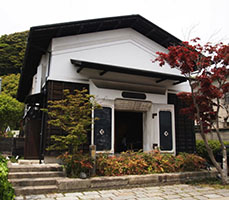
Reading a Local Community through Life Stories of People Living or Working
People living or working in a local community have their own civic pride and philosophy, and practical knowledge for living there. However, they are too tacit to elicit and externalize. Studies on practical techniques for externalizing civic prides and/or practical knowledge in life are still immature. We aim at (1) developing practical techniques for externalizing the life story of a person living or working in a local community and (2) reading a local community, civic prides and practical knowledge there, through the lens of several life stories.
(Person in Charge of the Project: Yuichiro Shimizu)
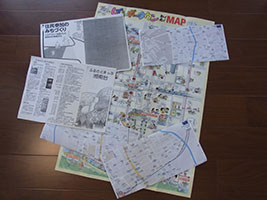
Recalling Scenery of Memories from Object/Sound
We see and hear a lot of thing in our daily life, but there is a moment when we suddenly recall the scenery of our old memories from some object/sound we usually ignore. In this project, we gathered the cases of those situations in order to reveal the relationship of the objects/sounds we meet in our daily life and the objects/sounds we have in our memories.
(Person in Charge of the Project: Sakie Uragami)
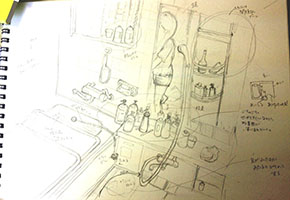
Web of Communication that an Editor as a Hub Creates
I have been a magazine editor for six years. This study externalizes practice knowledge that I possess as an editor to connect people and create a web of communication as a whole. The web of communication is something like a “family” whose center is me, who plays important roles in the family to make the web of communication work well. What kind of communication and roles in the family were born there? That is the central issue this study clarifies.
(Person in Charge of the Project: Shiho Onai)
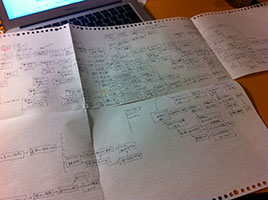
Health Education in the Laotian Village: Inter-professional Education Program for Primary Health Care
“Inter-professional Education Program for Primary Health Care” is a program in which students from three different participate together in primary healthcare activities in Laos and learn effective team approaches in the international field of healthcare through work experience. We visited activity fields of WHO, UNICEF, JICA, and medical institutions in Laos. We stayed with the village in southern Laos for two days and interviewed villagers about their health. In addition we carried out health education such as hand-washing or the tooth-brushing in the elementary school of the village.
(Person in Charge of the Project: Tomoko Koike)
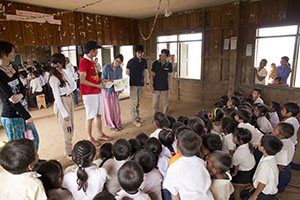
Health Science
We perform a research project about the health in the Mitsuhiro Watanabe Laboratory. We propose various methods to aim at the healthy longevity via both molecular biologic approach and social inspection.
(Person in Charge of the Project: Mitsuhiro Watanabe)
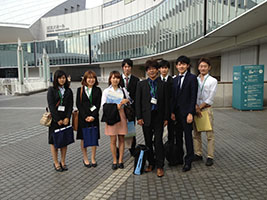
The New Era of Personal Genomes
With the rapid advance in DNA sequencing technologies, we will soon be able to sequence our own personal genomes with less than $1,000. This has the potential to transform modern medical care, which currently centers around treatment during illness, to preventive medicine, where the illness is prevented before its onset in the first place. On the other hand, many social and ethical issues exist as well. For this purpose, we have sequenced the whole personal genome of Professor Masaru Tomita, and made it open in public DNA databank for educational use.
(Person in Charge of the Project: Kazuharu Arakawa)
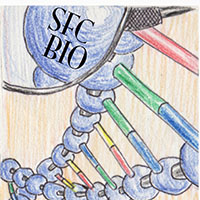
Elucidation of the Extremotolerant Abilities of Tardigrades
Tardigrades, commonly known as water-bears, are small animals found throughout the globe, from rooftop of houses in cities to Antarctica, and even in deep sea basin. The majority of the limno-terrestrial tardigrades can withstand dehydration by turning into a “tun” state, at which tardigrades can withstand extreme environments such as extremely high and low temperatures, pressure, and radiation. In fact, tardigrades are the first animals that survived exposure to space vacuum and solar radiation. Here we are actively analyzing the molecular mechanisms for such extremotolerant abilities of tardigrades with the latest technologies of modern biology.
(Person in Charge of the Project: Kazuharu Arakawa)

Synthetic Spider Silk: A Future Fiber the First Venture Capital Succeeded in from SFC
Spider silk is a super fiber that is tougher than iron and as light as nylon. As it does not rely on oil as a source and there is little emission of carbon dioxide in its production/disposal process, it is gathering public attention as the next-generation environmentally friendly fiber. Up to now, we have attempted the manual production of spider silk using forefront biotechnology. We continue to strive further to develop technology that allows the production of spider silk at large quantities.
(Person in Charge of the Project: Junichi Sugahara)

How to Create Creature - Challenge to Make Overall Structure of Vertebrate Using Amphibian Cells
Various types of tissue and organs can be created from pluripotent stem cells such as iPS and ES cells in current studies. However, it is still impossible that overall structure of creature is formed from these cells because of its technical difficulty depending on particular feature of mammalian developmental system. In this study, we are trying to create embryo from AC cells, which are amphibian blastula cells having pluripotency and show that embryo-like structures containing anterior tissue and body-axis with slight mobility are already induced in our assay.
(Person in Charge of the Project: Hiroki Kuroda)

Elucidation of the Host Defense Mechanism by Commensal Microbes
A wide variety of commensal microbes are colonized in our gut. They exert several physiological and pathological effects on our health via host-microbial crosstalk. It has been postulated that imbalance of the commensal microbes could be a risk factor for human disorders such as obesity, colonic cancer, as well as infectious diseases. Our recent research demonstrated that bifidobacteria, known as one of the ‘good’ commensal microbes, could prevent enterohemorrhagic E. coli O157:H7 infection through the up-regulation of gut epithelial barrier function. Further analysis showed that acetate produced by bifidobacteria is a key molecule for the inhibition of E. coli O157:H7 infection through the up-regulation of gut epithelial barrier function.
(Person in Charge of the Project: Shinji Fukuda)

Daiginjyou, Starting from Keio Tsuruoka Campus
Intriguing ideas do not emerge from meeting rooms or classrooms, but spark from a discussion with a cup of alcohol. Under the concept of “broadening one’s intellect”, the Institute for Advanced Biosciences of Keio University at Tsuruoka has collaborated with local traditional brewers to create a brand new pure rice Daiginjyou called “Chitoku”.
It has been certified by the world’s most advanced analysis technology that Chitoku contains many health functioning molecules, such as GABA.
(Person in Charge of the Project: Masaru Tomita)

Can Cancer Be Detected Using Saliva?
Saliva is a easily and noninvasively collected biofluid that can reflect physical and physiologic condition of whole body. Therefore, to detect any diseases using saliva provides us various benefits. We have conducted many clinical studies to discover biomarkers in saliva to detect a wide range of cancer diseases, such as oral, breast, and pancreatic cancers. This technology will be quite useful to monitor your health status in the near future.
(Person in Charge of the Project: Masahiro Sugimoto)

Recruitment of High School Students for Research Assistant
Similar to how many Olympic athletes have participated in world championship tournaments during their high school years, being involved in the forefront research from high school is highly important in becoming a world-leading scientist. Institute for Advanced Biosciences, Keio University offers various programs such as “high school research assistant”, “special research student assistant system”, “Summer Bio College (SBC)”, “Spring Science Camp (SSC)”, “Super Bio Program (SBP)”, and “Spring Science Camp” (sponsored by JST) which allows high school students to experience science from a young age.
(Person in Charge of the Project: Kalyn Kawamoto)

Residential Program of Experiment Classes in Tsuruoka Town Campus of Keio
“Biocamp” is a program that allows SFC undergraduate students to stay at the dorms at Tsuruoka Campus (Yamagata Prefecture) for one to two semesters, and acquire the fundamental and practical skills of biotechnology. At the end of each semester there are English presentations, and we aim to nurture students that will actively participate in scientific research around the world. It is possible to get up to 20 credits, and participants can develop creative ideas, studying in the natural environment of Tsuruoka.
(Person in Charge of the Project: Kalyn Kawamoto)

Simulation of Cardiomyocytes and Heart
Early embryonic rodent ventricular cells exhibit spontaneous action potential, which disappears in later developmental stages. In our project, we integrated reported characteristics of developing cardiomyocytes on computer models and conducted various simulation analysis to present an overview of the functional landscape of developmental changes in embryonic ventricular cells.
(Person in Charge of the Project: Hitomi I. Sano)

Novel Health Ingredient in Edible Mushrooms: Ergothioneine
Edible mushrooms were known to have antioxidant. Above all, Ergothioneine (EGT) is especially paid attention in recent years. EGT is absorbed into human body from foods and remove oxidative stresses at skin and organs. In our study, to search the best way to absorb EGT from mushrooms, we measured amount of EGT and its related metabolites in some kinds of edible mushrooms under various cooking procedures. Additionally, we also focused on the difference of EGT concentrations by part of the mushrooms.
(Person in Charge of the Project: Kaori Yamamoto)

Research on Survival Mechanisms of Ultraviolet Resistant Microorganisms
Recently, our coworker Ames Research Center of National Aeronautics and Space Administration (NASA) have succeeded to isolate two strains from bacteria and fungi as UV resistive microorganisms. We are now working to elucidate the survival mechanism of UV resistive microorganisms by a metabolomics approach. This research on survival mechanism against UV damage could possibly lead to medical applications such as preventing skin cancer, or even further, outer-ship space activities.
(Person in Charge of the Project: Mayuko Tsuruoka)

Biofuel for the Next Generation: Oil-accumulating Microalgae
Neutral lipids derived from oil-accumulating microalgae have promising potential for a next-generation biofuel. However, reduction of the production cost is necessary for their commercialization. We are currently constructing a collection of Japanese oil-accumulating microalgae, and comparing their productivity, quality of produced oil, and their growth rates. We anticipate that some profitable strains will be found from the culture collection. Additionally, we performed metabolome analyses of the oil-accumulating microalgae to reveal the flow of metabolites in the cells. The results would help the development of more highly oil-accumulating algal strains.
(Person in Charge of the Project: Takuro Ito)
URL: http://bio.sfc.keio.ac.jp/

"Karadakan" Cancer Information Station
The Cancer Information Station “Karadakan” was established in 2007 in Tsuruoka City in Yamagata Prefecture. We have been providing various educational programs to cancer patients and families, health professionals, and the general public. A wide range of information includes scientifically based, unbiased information about cancer symptoms, diagnoses, treatment, and early detection, as well as a variety of patients’ experiences and stories about living with cancer. Current collection includes over 1,400 books about cancer, various pamphlets, multimedia, and computers for online searching. We hosts study groups, symposiums, meetings of health service and support groups in the community.
(Person in Charge of the Project: Miki Akiyama)
URL: http://karadakan.jp/
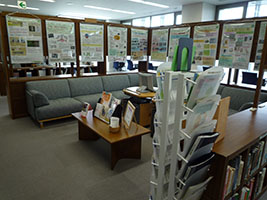
Preventive Medicine for Healthy Community: The Tsuruoka Metabolomic Cohort Study
The Tsuruoka metabolomics cohort study, first prospective epidemiological study with multi-omics (genome + metabolome) approach in the world, is an innovative preventive medicine project with IAB’s cutting-edge metabolomics technology started in 2012. Trans-boundary, all-Keio health researchers from IAB, Faculty of Environmental and Information Studies and School of Medicine are working together with all health and medical professionals in Tsuruoka region. We expect to not only reveal effective new biomarkers for disease prevention but also achieve the healthy city in the future.
(Person in Charge of the Project: Toru Takebayashi)
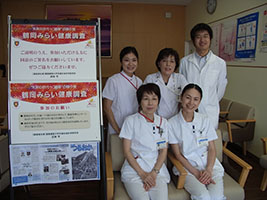
Health Communication Research Laboratory
The Health Communication Seminar’s aim is to improve the people’s health by communication. To accomplish this, we are learning this method and applying it to the event for elementary school student in Tsuruoka City. Health Communication is the new field that combines many fields like communication, informatics, and public health to find better solution to encourage people to change the behavior related to health. In this ORF, we are going to introduce what the health communication is and the examples of actual practices to protect and improve people’s health.
(Person in Charge of the Project: Miki Akiyama)
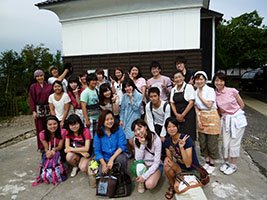
Logical Golf
Our laboratory advocate a new golf swing technique, which is based on the mechanical model. We ensure you to hit a long ball naturally and effectively without resort to the muscular force. We provide “Logical Golf” with both the mathematical theory and the state-of-the-art technology.
(Person in Charge of the Project: Ken Ohta)

Creation of New Sports
Ohgi Laboratory, we are working to be quantified using a sensor motor skills evaluation in sport. We would like to introduce our research in ORF.
(Person in Charge of the Project: Tomohiro Egawa)
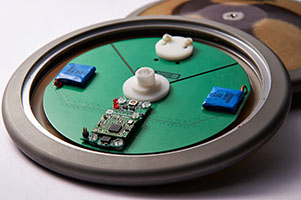
Mechanics of Injury Prevention in Sports
As population of sport players has increased, injury prevention has become one of interests of sports scientists. In many sports, ligament and muscle injuries frequently occur without any contact from other players. Such non-contact injuries sometimes require more than 1 year of post-injury process including rehabilitation. Thus injury prevention needs to be considered as an important issue for contribution to wellness of sports. This will represent a process to estimate injury risks and propose a method to reduce risks of non-contact injuries.
(Person in Charge of the Project: Ken Nishikawa)
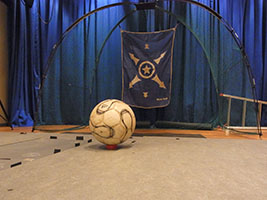
Global Security Research Institute
Keio University’s Global Security Research Institute conducts academic research into issues by reading into the world’s changes and selecting those that are valid from among the many issues confronting modern society. We tackle various issues confronting modern society, not just those felt on a global scale such as science technology and innovation, energy and environmental issues, safety and security or human security, but also matters that affect lifestyles on the individual level. We go on to provide policy suggestions and conduct research from the perspective of creating objective evaluations.
(Person in Charge of the Project: Heizo Takenaka)
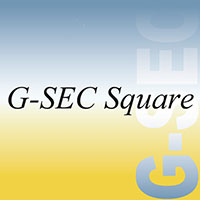
Reviewing a Quarter Century after the Bubble Burst
This work reviews the 25 years (the quarter century) that will, in 2014, have passed since the Japanese stock market peaked in 1989. It comprehensively examines the changes that have visited the Japanese economy during this period. Rather than seeing this period as a quarter century “lost”, this examination focuses on the theme of a quarter century of “mixed” fortunes for Japan.
(Person in Charge of the Project: Heizo Takenaka)

From the "Recovery of the Disaster Area" to the "Reconstruction of Japan"
- The Trial of Keio G-SEC Reconstruction Leader’s Conference
When two and a half year has passed since the Great East Japan Earthquake and continuous effort has been put into the reconstruction in the affected areas, we need to consider enrooting sustainable regional development business instead of mere recovery from the disaster. Starting with “The Reconstruction Leaders Conference “members’ presentation of their proposals, this panel discussion will have leaders from different sectors to discuss how to accomplish the “Reconstruction of Japan”, not just the “Recovery of the Disaster Area.”
(Person in Charge of the Project: Jiro Tamura)

Research Studies on Enhancing Structures for International Cooperation in Biosecurity
Our project has been providing an interdisciplinary research and networking platform for enhancing structures for international cooperation in biosecurity. Within Japan, our project implements various activities such as workshops and seminars to promote intellectual exchange among government officials, scientists and other stakeholders, thereby creating a network of experts to strengthen efforts to counter biological threats. In addition, through its networking and research function, our research group also performs an important role in promoting bilateral cooperation in medical biodefense research between the United States and Japan under the US–Japan Framework Initiative for a Safe and Secure Society.
(Person in Charge of the Project: Setsuko Aoki)

Development of an Online Platform for Digital Comics
By integrating service design and the Lean Startup method, this project tries to develop a new online platform business for innovating digital comic experiences.
(Person in Charge of the Project: Masanao Takeyama)

Development of Service Design Methods Based on Service Dominant Logic
Based on the framework of SD Logic which integrates customer values and business models, this project aims at developing a method for designing services by visualizing user experience and finding opportunities for business innovation.
(Person in Charge of the Project: Masanao Takeyama)

KEIO - UN PRME Project
PRME (Principles for Responsible Management Education) is a value-based platform for 21st century management education. Currently, 505 business schools, and business related departments in the world have committed these principles to practice management educational reform. In 2007, G-SEC joined this movement and has been a leader among Asian business schools. Last December, the PRME 3rd Asian Forum was hosted by Keio-PRME project at G-SEC, and 150 scholars and students from 11 countries gathered at Keio Mita campus. Our presentations show a portion of accomplishment under this project.
(Person in Charge of the Project: Mitsuhiro Umezu)

Deliberative Polling and Project Management
In this project, we design and take a survey on a new type of polling called “Deliberative Poll” and analyze what kind of “public opinion” participants are from all over Japan through the random sampling, get detailed information from discussion materials and expert about policy areas, discuss in small groups, make.
We will report on the DP of the national public pension system in 2011, on energy and environmental policy in 2012.
(Person in Charge of the Project: Yasunori Sone)
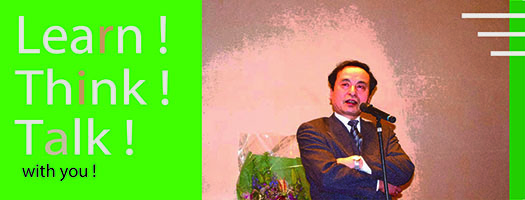
Project of Arab Islamic Studies
This project deals with Islamic studies and Islamic area studies developing relationship to institutions in Arab Islamic countries. It contains program of inviting Arab Students to Japan, program of enhancing Arabic education, program of data base of Arabic dictionary, program of Halal and Haram, program of developing of relationship to institutions for academic exchange, field works basing upon Islam as methodology research, Islam and Global Governance Research Project.
(Person in Charge of the Project: Atsushi Okuda)
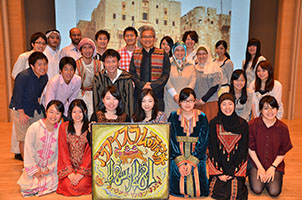
Japan Studies Platform Laboratory
(To be announced)
(Person in Charge of the Project: Fumiya Hirataka, Tomoki Kamo)
URL: http://jsp.sfc.keio.ac.jp/english/
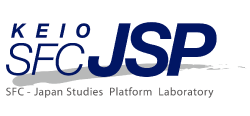
Study of Thought for Policy Management
The purpose of our exhibition is to explain the significance of Study of Thought at SFC and to present the activity of Hori Laboratory. We think that an effective policy for promoting social changes could be drawn up by examination of present-day aspects in their historical context and in history of ideas, and by establishment of a thought suitable for a new age. “There is no policy without thoughts.” Study of thought is not totally dissociated from the reality, but associated with considering and reforming the actual world.
(Person in Charge of the Project: Shigeki Hori)
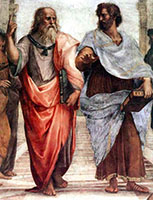
Passport for the Creative Society: Ways of Self-Actualization in the Fast Changing World
To achieve a society where we each create the future with our own hands, the Takashi Iba Laboratory is creating Pattern Languages to support the creative processes in people.
We will be presenting the Global Life Patterns in this exhibition. Though “globalization” has become a key factor in today’s society, the term still remains ambiguous and multifarious. To help each person to find their own ways of keeping their individuality and to take specific actions for its realization, we will suggest a feasible methodology using a pattern language.
This exhibition will also include a pattern language for creating new policies, the “Policy Language”, and a pattern language for developing one’s own way of life.
(Person in Charge of the Project: Takashi Iba)
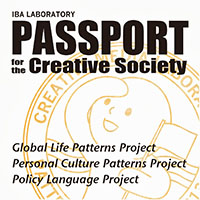
TPP Negotiation with Japan and International Trade
We research international policy and economy, especially international trade. This time, we focus TPP (Trance-Pacific Strategic Economic Partnership Agreement). This year, Japan started to take part in negotiation of this agreement.
To add this agreement will improve the mega regional cooperation and be effective in international trade.
(Person in Charge of the Project: Yorizumi Watanabe)
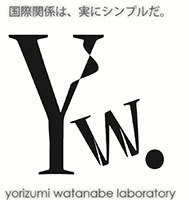
 Open List
Open List
 Close List
Close List
- Pink Yen Project
- Rika Fujiya Laboratory
- Yuko Tokairin Laboratory
- Japan Hiesho Nursing/Midwifery Society
- Laboratory on Innovative Research and Practices for Nursing
- Psycho-Space
- Internet and Society Laboratory
- Keio Fujisawa Innovation Village
- Yoshinori Isagai Laboratory
- Green Society ICT Life Infrastructure Research Center
- Takashi Iba Laboratory
- Generative Beauty Project
- Koishi Research Group
- Oral History Laboratory
- Medical Ethics & Patient Safety Laboratory
- Spanish Section
- Keio Shonan-Fujisawa Junior & Senior High School
- Keio SFC Academic Society
- International Program for Environmental Innovators
- Hiromi Shirai Laboratory
Pink Yen Project
We researched for how to do LGBT marketing in Japan. LGBT generally mean sexual minorities, like lesbian, gay, bisexual, and transgender. It is said that they have strong consumption propensity so that many European and American companies try to reach them positively. We researched for how to do LGBT marketing and how to be diverse organization in Japan.
(Person in Charge of the Project: Koki Hayashi)

Global Health Field Activities in Palestine and Cambodia
We discuss the approach that allows for “health for all people” through the feed work in the region under the difficult situation that is guaranteed the health, because we regard as health is a state of complete physical, mental and social well-being. In this project, we will present our field work in Palestine and Cambodia.
(Person in Charge of the Project: Rika Fujiya)
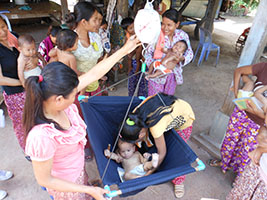
Life Skill Program, Coaching Lab
“Life Skill Program” aims at active mutual communication with the others and striving for constant growth through adherence to the cycle of “plan-do-see”. The students from Tokairin Laboratory who play an active part in sports (basketball, baseball, track and field, cheerleading, skiing, dancing, etc.) and teaching/coaching to the kids (including kids with disabilities) will introduce their own effective Life Skill Programs at ORF.
(Person in Charge of the Project: Takako Uchida)
URL: http://yukon-lab.jimdo.com/
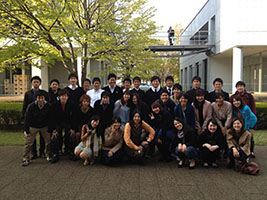
Japan Hiesho Nursing/Midwifery Society
Japan Hiesho Nursing/Midwifery Society
(Person in Charge of the Project: Sachiyo Nakamura)
URL: http://hiesho.kenkyuukai.jp/
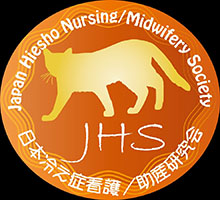
Best Practice of Nursing
Quality, Utility and Explore
(Person in Charge of the Project: Hiroko Komatsu)
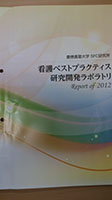
Psycho-Space
We will make a presentation on a new academic area, called ‘psychological fashion’. We also have ‘Yorozuya counseling’ that the professors help you remove the cause of your worries. Your worries can be anything. We are looking forward to hearing your worries and give you advise.
(Person in Charge of the Project: Hiromi Ishige)
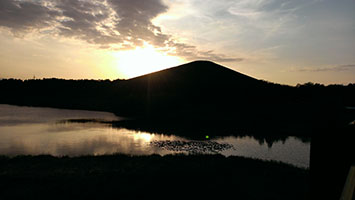
Academy Camp 2013
Academy Camp is a school of fun to provide children in Fukushima, affected by TEPCO F1 nuclear disaster, with opportunities to play and learn in an extreme fashion. Children and adults break out of their shells in the camp workshops hosted by professionals in a variety of fields. In this exhibition, we mainly introduce camps we have conducted in 2013.
(Person in Charge of the Project: Kenji Saito)
URL: http://academy-camp.org/
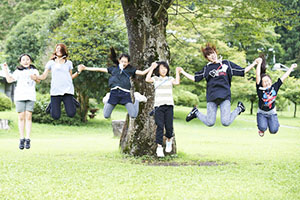
SIWS - Social Innovation by WEB Service
The words “social issues” may sound big. However, we believe that a problem becomes a social issue when there is more than one person who are concerned. We try to solve these “troubles for everyone” by redesigning activities of people and how they relate to one another through web-based services.
(Person in Charge of the Project: Masaki Morosawa)
URL: http://www.facebook.com/necolab

Manabi no Kiseki
“Manabi no Kiseki” is a project that helps SFC students to design their own learning plans for four years. They are expected to do so on their own initiatives, but it is difficult without a guidance. This project visualizes “learning”, or discoveries by senior students through classes and research activities, and shares such discoveries on the web, in the hope to enrich learning experiences of SFC students.
(Person in Charge of the Project: Ayumu Terao)
URL: http://www.facebook.com/necolab
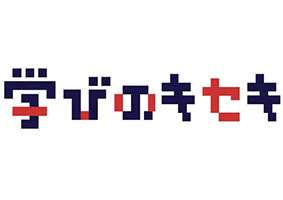
Political Communication Research Group
The purpose of this project is to make a “trick” to remove gaps between politics and ordinary people, by providing something more friendly and easier to understand than the government’s official web sites. In order to translate “political” language into “our” language and “soften” our government, we make a dictionary, a picture book and so on, using information graphics, political illustrations and refined sentences.
(Person in Charge of the Project: Minako Aikawa)
URL: http://www.facebook.com/necolab
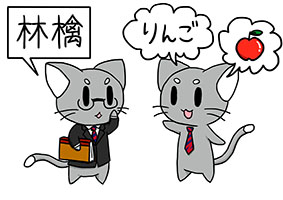
Keio Fujisawa Innovation Village
Keio Fujisawa Innovation Village, which opened in March 2006, is a collection of companies and organizations aimed to commercialize the results of research carried out at SFC. Our booth has details of comprehensive support provided in facilities and the rich infrastructure, as well as such items as details of resident companies and information about their business activities. We would be delighted if entrepreneurs, supporters and collaborators looked over these items.
(Person in Charge of the Project: Katsuya Hirokawa)
URL: http://www.smrj.go.jp/incubation/sfc-iv/
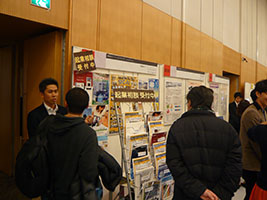
Yoshinori Isagai Laboratory - Social Innovation by 'Boundary Perspectives' -
Isagai Laboratory has evolved into Version 3.0 and we aim at social problem solution by ‘Boundary Perspectives’. In order to design the effective platform for learning with various subjects, suiting, realizing cooperation, it becomes an important point to consider balance for how division of inside and outside is built carefully. We think that it becomes a practical approach applicable to various fields, such as formation of not only the field of regional vitalization but community of practice and learning, traditional industries and local shopping areas activation, and folkloristics.
(Person in Charge of the Project: Yoshinori Isagai)
URL: http://isagai.sfc.keio.ac.jp/
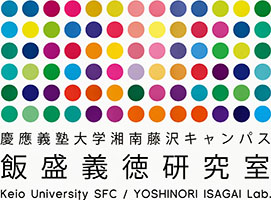
Green Society ICT Life Infrastructure
Recently, local governments in Japan have increasing need to consider extensive and effective community-based adaptation polices to cope with future climate change so that resilience of communities can be build to adapt to impacts of regional climate change. The goal of this research is to bring about a revolution in Japan social system that would materialize a new social vision aimed at forming a resilient community by increasing their social capital through organizational linkages and social supports. Okutama City, Tokyo and Kurihara City, Miyagi Prefecture were chosen for pilot studies. We analyze and estimate community’s vulnerability to climatic impacts using projections based on climate change data focused on localities. In particular, we developed Green Society ICT Life Infrastructure using sensor networks, measured information about household with respect to energy consumption, health conditions, data of conditions of agriculture crops. These results will be translated into community’s adaptation policies and will be utilized to reduce ill effects on local energy situations, health and medical conditions, and agriculture vulnerable to climate change.
(Person in Charge of the Project: Ikuyo Kaneko)
URL: http://www.green-lifeinfra.com/
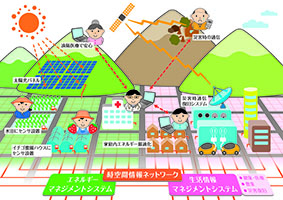
Passport for the Creative Society: Creating a Common Language in an Organization
To achieve a society where we each create the future with our own hands, the Takashi Iba Laboratory is creating Pattern Languages to support the creative processes in people.
This exhibition will place focus on the creation process of Pattern Languages. We will present the history of patterns and how the Iba Laboratory has extended and developed the idea. We will show how Pattern Languages can be applied to organizations by showing a possible form of employee training. In addition, take a look also at the many other forms of using pattern languages, including the dialogue workshops designed to urge people share their experiences using patterns.
(Person in Charge of the Project: Takashi Iba)
URL: http://ilab.sfc.keio.ac.jp/
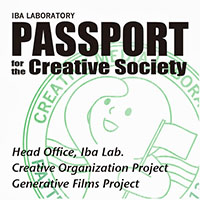
The 4th Place
To live lively and beautifully in your daily life, the place where you reflect on yourself is necessary. The place is not similar to home, workplace, and community place, rather the 4th place for life. In this presentation, we show a new web system “The 4th Place”, where you can reflect on yourself and write down your feeling with a picture, based on the Generative Beauty Patterns.
(Person in Charge of the Project: Takashi Iba)
URL: http://beauty.sfc.keio.ac.jp/index.html
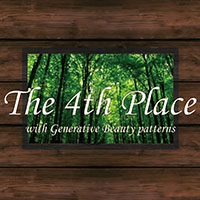
Workshop on Language Education
[The Must-attend 'Language' Class]
At our booth, you can experience classes mainly about ‘language’! What kind of classes? Well, for example, such themes as 1) bilingual and multilingual education… it’s not only their ability to speak more than one language that’s amazing about them. 2) Truth and lies of language learning-the science about learning a foreign Language… what should we be careful about when we’re teaching children a foreign language? 3) Language rights… are the language rights for children who are related to foreign countries, who are deaf protected in Japanese schools? Also, there will be individual studies associated with the themes above to see! Don’t miss it!
(Person in Charge of the Project: Atsuko Koishi)
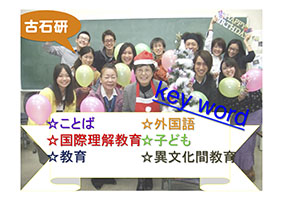
Discover the Unknown by "Listening" - Oral History -
Theme of Oral History seminar is reconsidering our everyday behavior, “Listening”. We strive to obtain information by voices of real people instead of from written sources such as literature and statistical data. Connecting with people by “Listening” and “Talking” simply gave us opportunities to feel the warmth of people. At the forum, each member of this seminar will share about what they have acquired seeking a different perspective by “Listening” on their research project.
(Person in Charge of the Project: Yuichiro Shimizu)
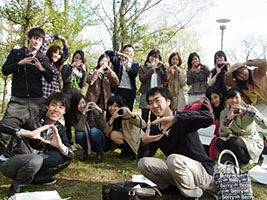
Medical Ethics & Patient Safety Laboratory
Our laboratory aims for those involved in research, practice and public administration in a variety of fields to work together to study medical ethics and medical safety issues and suggest public policy improvements.
Based on the integrated, inter-disciplinary knowledge we gain, we will suggest training topics, create educational materials, and conduct educational seminars.
(Person in Charge of the Project: Syoichi Maeda)
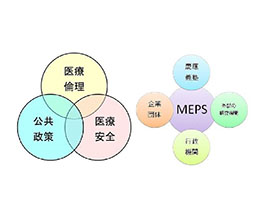
The Development of Foreign Language Learning Resources and the Study of Language Acquisition
For students who want to learn foreign languages naturally and efficiently, we design language-learning resources by using language acquisition theory. For example, we create Spanish learning materials for students who want to keep learning Spanish on their own while they are unable to take the class at school, and those who are not very good at speaking it. On the other hand, there is a Chinese resource for beginner level. This is designed as practicing pronouncing Chinese without using kanji.
We also introduce an example of basic study based on language acquisition theory. Please come and see the world of the research and the material development of learning languages.
(Person in Charge of the Project: Hiroko Terada)
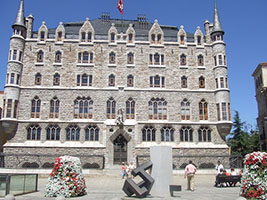
Works by Students
We show the works of our students, such as a computer edited clay animation from ICT department, a statistical graphic poster from the social studies department, 3D model from the mathematics department, and a calligraphy work from Japanese department.
(Person in Charge of the Project: Haruhito Watanabe)
URL: http://www.sfc-js.keio.ac.jp/
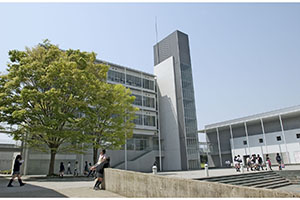
The 7th Workshop on Research Activities by SFC Students
SFC have a lot of students who work on cross-sectional style, without shackled by a single laboratory. We want to provide them a chance of asking for advice and making collaboration. So to say, this area is free presentation space for them. Please enjoy finding fun, difficulty and possibility with them.
(Person in Charge of the Project: Yuichiro Shimizu)
URL: http://gakkai.sfc.keio.ac.jp/en/index.html
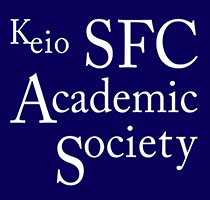
International Program for Environmental Innovators
The Environmental Innovators program is a graduate school designed around project based education, including areas such as environmental design (architecture and urban planning), environmental business, environmental planning and policy, and social entrepreneurialism. The scale and breadth of problems presented by climate change and other environmental issues requires new solutions and innovation across disciplines, as well as a commitment to multidisciplinary action. Seeing a need for action as well as a need for innovative thinking, our starting point is that education should be focused on the creative synthesis of projects and coursework.
(Person in Charge of the Project: Wanglin Yan)
URL: http://ei.sfc.keio.ac.jp/index.php?lang=en
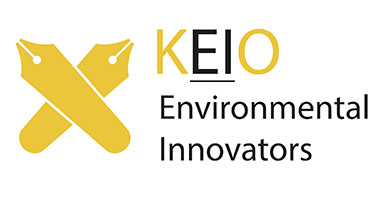
@RolaWorD
As communication styles among young people have been diversifying recently, a model named Rola, has drawn public attention to her. Unlikely for most young people, her unique communication style of talking to seniors without the usage of keigo put a spotlight on her. However, upon studying her communication style, it is apparent that there is a clear representation of solicitude through her thoughtful words and actions. As Rola implicitly displays her solicitude through her distinct style, in order to unveil her communication strategy, I will analyze it through various perspectives such as politeness, wakamonokotoba, and non-verbal actions.
(Person in Charge of the Project: Hiromi Shirai)
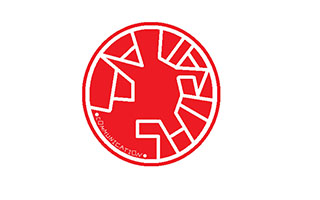
Discourse Analysis of Twitter
Finding out the unique communication patterns on twitter is the final aim of this investigation. To reach the goal, we need to approach from many ways to structured the communication patterns.
On our investigation, we will use discourse analysis to analyze the communication on twitter and structured the peculiarity. The research will be approached from conversation strategy and interaction.
(Person in Charge of the Project: Hiromi Shirai)

"Suberanai" Talk
We have shown how comedians make up stories complicity with others to make us laugh. Based on the “complicity”, we analyze deployment of conversation.
On 14th April 2013, we interviewed Mr. Enomoto who is the editor of “comical story”. We approaches the implicit knowledge, how comedians and editor do to make “comical story”.
(Person in Charge of the Project: Hiromi Shirai)

Coffee Fair Trade between Japan and Mexico by FTP
In December 2011, Maya Vinic Producers’ Cooperative (Maya Vinic) opened store-roasted cafeteria at San Cristóbal, Mexico. This is one of Junichi Yamamoto Laboratory’s outcomes of the support to them by using the scheme of JICA.
The uniqueness of our effort is that Maya Vinic works from seed to cup consistently by themselves. Also one of FTP members promotes “Maya Vinic Coffee” in a domestic market.
(Person in Charge of the Project: Junichi Yamamoto)
URL: http://web.sfc.keio.ac.jp/~llamame/index.php?id=52
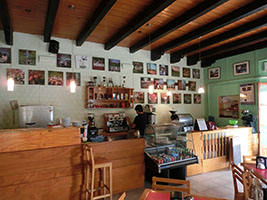
The Cooking Studio with Fukushima Farmers
There have been reputational risks, loose potential business with false rumor, on Fukushima crops since 3.11. We strongly suggest that “The Cooking Studio with Fukushima Farmers” is the best way to solve situations. In the cooking studio, we arrange a workshop, makes deep understanding for radioactive materials, through cooking with crops which furnished by the Fukushima farmers. It is an aims to contribute to make reliance or relationships between the farmers and consumers, moreover, we hope “The Cooking Studio” will be an effective action to resolve the reputational risks.
(Person in Charge of the Project: Masamitsu Maruyama)
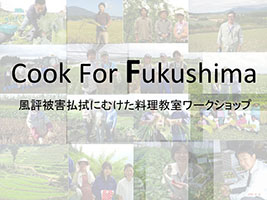
Interviewing-and-Editing Project
We are going to introduce a method of career education, “Interviewing-and-Editing”, for Fukushima High School. Interviewing and Editing is to interview somebody who would be the student career goal or question job experiences someone who lives in the student interest scope, then make a writing, and discuss with other people, finally, to create own awareness of issues or career decision. Since 3.11, there are various people who are active in to resolve the problems which Fukushima held. Convert such experience to Fukushima students would be an education opportunity, it would support and encourage for changing mind for their own goals.
(Person in Charge of the Project: Taisuke Kake)
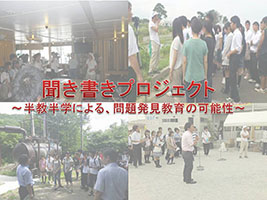
The Impact Assessment of Climate Change to Water Resources in Sagami River
“Water Resources” is essential for our lives. However, it is predicted that its vulnerabilities are increasing due to changes of precipitation (volume, pattern), and changes of land/cover caused by climate change. The purposes of this study are clarifying its impact to water resources and to suggest adaptation policy measures with computer simulation.
(Person in Charge of the Project: Ryosuke Kawabe)
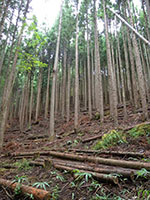
Shinagawa Symbiocity
Area around Shinagawa and Tamachi Station is designated Tokyo’s Special Zone for Asia Headquarters where Tokyo Metropolitan Government is implementing a new project to attract foreign companies. Through this project, Shinagawa Tamachi Station Area is expected to enhance its capacity to excess in world interurban competition. Purpose of this Study is to suggest “SymbioCity” which means Urban Core makes harmonious coexistence with the global environment in terms of Energy Consumption, Water Supply and sanitation, Waste Management, Urban Climate.
(Person in Charge of the Project: Daisuke Ido)
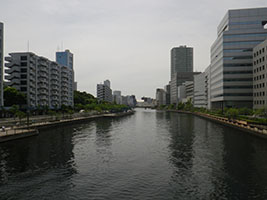
Project Japanese Language
It is a project for the purpose of “a new relationship building with the Japanese education”. By using the Japanese language teaching method “Iwasaki Method”, we went to class once a week in Japan in the Democratic Republic of the Congo Embassy mainly. It is a project the possibility of future increases.
(Person in Charge of the Project: Hajime Makino)
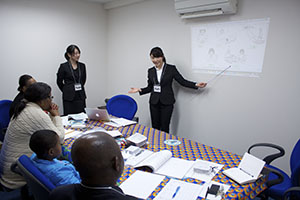
New York Project
In New York Project (NYP), we aim to provide an environment where middle school students can express themselves freely by using English and also a place where students can experience international cultures. Every two weeks, three to five students from Professor Hasebe’s NYP visit the public junior highs to run a workshop for the students. Through these workshops, we, NYP members, research how the workshops motivate the students’ attitude towards learning and the process of how students develop a better communication system.
(Person in Charge of the Project: Shinano Ide)
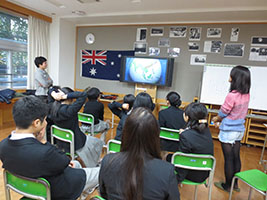
"Sprits of the Young Americans" in Our Lives
The Young Americans Project focus on “Outreach Tour”, which is the activity of The Young Americans. We work on case studies under the Support of NPO Jibun Mirai club invites The Young Americans.
We expect the improvements of communication ability, self-expressiveness, independence of youth.
(Person in Charge of the Project: Yoko Hasebe)
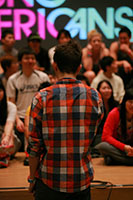
Parent' Support and Child Abuse Prevention from the Viewpoint of Social Capital
Complaints about child abuse exceed 50,000 annually. Our laboratory thinks about preventing child abuse from the viewpoint of bonding with the local community (fostering social capital). Since the year before last, we have been conducting field work involving us working with Odawara Municipal Government officials and city residents to provide civic-centered child-rearing support with the aim of building a relationship with the local community.
(Person in Charge of the Project: Masako Kaneko)
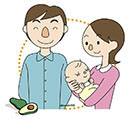
Atsushi Shinjo Laboratory
We are focusing on linking the cutting-edge science technology to the current social system, applying basic science to the society in order to achieve industrialization.
(Person in Charge of the Project: Atsushi Shinjo)
URL: http://www.kaminari-lab.net/

Utilization of Non-Invasive Measurement Technology and the Experts' Judgment Information for Technology Procession
We are focusing on building a platform for efficient technology procession by combining various sensing data taken by non-invasive measurement technologies with experts’ judgment data and implicit knowledge.
(Person in Charge of the Project: Atsushi Shinjo)

Practical Application of a New Human Resource Training and Evaluation Service Based on an Objective Evaluation Method of the Quality of Nursing Care Services by Means of a Data-Utilization Platform
This project is aiming to develop a new human resource training and evaluation service and put it to practical use. For that, we have developed an objective evaluation method of the quality of nursing care services by means of a data-utilization platform. This platform enhances caregivers’ awareness by data visualization and supports to get proficient at caregiving. We have also developed a model of a support service for human resource evaluation by reference to best practices of high-quality care including the model care facility. Now the validation of our developed new human resource training and evaluation service is going on.
(Person in Charge of the Project: Jun Murai)

Agri-platform Consortium
Agri-platform Consortium focuses on exemplary farmers’ “expertise of Takumi” such as the judgment capabilities of exemplary farmers and skilled distributors/retailers. “Expertise of Takumi” forms the base of Japan’s medium- to long-term agricultural growth, and we are also trying to come up with a scheme to protect intellectual rights of “Takumi”.
The consortium aims at the development of a platform that will shape “structures for production and sales for valuable agricultural products”, supported by one of the most advanced agricultural technology bases in the world, in order to realize “aggressive agriculture”.
(Person in Charge of the Project: Atsushi Shinjo)

Career Support
Career Resource Laboratory, a member of Keio Research Institute at SFC, is a group devoted to research in career-related issues. Management style of Japanese companies is changing, and so is work style of individuals. The ownership of career development used to be in the hands of organization, but now it is shifting into the hands of individuals; a new paradigm called career-self-reliance. Career Resource Laboratory supports and promotes career-self-reliance through research studies, training career advisors, developing self-assessment tools, conducting workshops, and advising human resources professionals regarding new career support programs.
(Person in Charge of the Project: Yasuyo Yoshizawa)
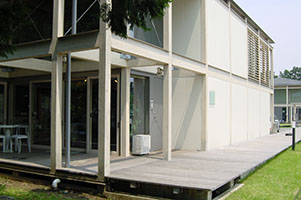
Chatty Long Tails
Take the head and the tail from a particular social phenomenon and try to work out how you should understand the overall. Unlike the old Silent Majority, people on the Internet’s Long Tail are all extremely chatty. Using a variety of data, we conduct research into these chatty long tails. Network data is always new and there is no set method of analyzing it. Please look at the results of our daily trial and error.
(Person in Charge of the Project: Kenji Kumasaka)
URL: http://ken-lab.tumblr.com/
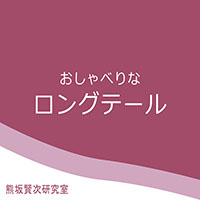
 Open List
Open List
 Close List
Close List
- Yasushi Ikeda Laboratory
- Akira Wakita Laboratory
- Fumitoshi Kato Laboratory
- Wanglin Yan Laboratory
- Katsuhiko Ogawa Laboratory
- Hiroya Tanaka Laboratory
- Shohei Matsukawa Laboratory
- Tomohiro Ichinose Laboratory – Landscape Studies -
- Takashi Iba Laboratory
- Tomohiro Ichinose Laboratory – Kesennuma Reconstruction Project -
- Cyber Sound Project
- Naoto Nakajima Laboratory
- Hiroto Kobayashi Laboratory
- Daijiro Mizuno Laboratory
- Naoto Nakajima Laboratory
- Yoko Hasebe Laboratory
- Yoko Hasebe Laboratory
- Toshiyuki Masui Laboratory
- Yasuaki Kakehi Laboratory
"ECODIGI" - Computational Eco-Architecture Design -
In “Eco-Digi” Project, a combination of environmental simulation technology, parametric digital fabrication technology, and algorithmic assembly technology, alongside a proposal for experimental housing using wood (natural material) are used in order to establish computational methods in urban environment or architectural design with symbiosis of nature and people, for example Keio co-evolution eco-house.
(Person in Charge of the Project: Takeshi Sato)
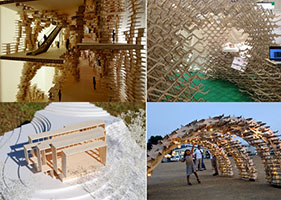
Easy-to-use Fluid Simulation Environment Based on Lattice Boltzmann Method
There is a growing need for easy-to-use fluid simulation environment for media artist and designers.
However, existing software require deep knowledge for Computational Fluid Simulation (CFD).
To address this problem, we have developed a easy-to-use CFD library for non-physicists.
The solver is based on Lattice Boltzmann Method (D2Q9) and provided as a library for Processing.
(Person in Charge of the Project: Akira Wakita)
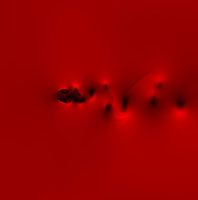
Electronic Origami with a Color Change Function
Origami, a traditional creative activity in Japan, is being appreciated for its artistic aspects. In the recent years, there have been creations with electric parts like LED and Bio-metal used as a part of the work. We especially focused on the color of Origami, and held a workshop which had the participants make an Origami creation using Origami paper that are able to change colors.
(Person in Charge of the Project: Tatsuya Kaiho)

Digital Reverberation Using GPU-Based Fluid Simulation
In recent years, the computing power of GPUs has increased, and the use of GPUs for applications other than graphics ones is becoming popular.
The purpose of this study is to explore the possibility of creating Digital Reverberation using GPU-Based Fluid Simulation for musical expression, instead of conventional method such as using multiple delay or impulse response data measured in a real space.
(Person in Charge of the Project: Ryoya Tabata)
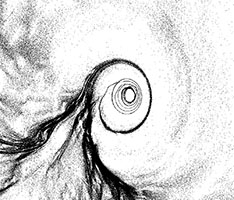
CORAL SIMULATION
This project is made for expression of beautiful coral “Hanagasa Sango”. The tentacle has attracted artists and scholars for many years, from age of Ernst Heckel to present time. Above all, “Hanagasa Sango” has very beautiful tentacle and its algorithm will give artists development in computer graphics, robotics, and more.
(Person in Charge of the Project: Taiki Niimi)
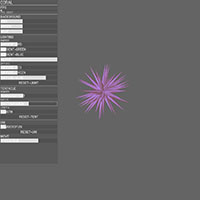
Electric Furoshiki
Furoshiki has been used to wrap various things for a long time. We may express the feelings of gratitude and consideration by wrapping a gift in Furoshiki. In this study, we incorporate electronic components on a piece of cloth and add the interaction to Furoshiki, and aim at realization of Electric Furoshiki which tells a message in a new way. By using built-in electronics to a piece of cloth, is added to the interaction of wrapping cloth, with the aim of realization of Electric Furoshiki to convey the message in a new way. We propose a new way of communication to convey feelings by it.
(Person in Charge of the Project: Ayaka Matsuyama)

Sonic Matter
In humans the audible range of frequencies is usually 20 to 20,000 Hz. However, frequencies of the inaudible range can be perceived as a physical vibration. This study visually expresses “sonic matter”, in order to understand their phenomenon and human typical sensory property.
Materials used in this study are five speakers and liquid. The vibration of the sound from the speaker is transmitted to liquid, and it expresses as undulation. A realtime computational sound is generated by spectator’s action, and the liquid pattern emerged from the speaker that vibrates.
(Person in Charge of the Project: Yuta Urade)
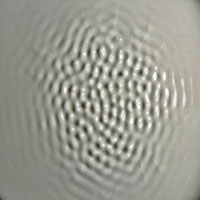
Nodes of Design
Design is to completely plan for everything that occurs between people and artificial objects and the technique needed to create items that are easily used, useful and so beautiful they are picked up without thinking. However, all over the world design is a difficult field to get into professionally and it is hard to make a commercial success of it, so there remain many areas that have not yet been designed. We have conducted all sorts of communication with experts to find value from the inside of these untapped areas, created prototypes and made them into actual items.
(Person in Charge of the Project: Shunji Yamanaka)

Design of Daily Life
We tend to overlook various “good designs” embedded in our daily life, because of their obviousness.
Our attempt is to create a moment from which we can reflect upon their obviousness and to examine how things and events are socially situated.
As exemplars, we will introduce on-going research projects on local arts and crafts shows, and signage within cities.
(Person in Charge of the Project: Fumitoshi Kato)
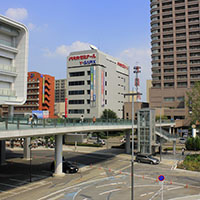
Development of the System for Early Adaptation to Climate Change in Mongolia
In Mongolia, government and herders are suffered from the damage caused by extreme weather that names Zud, which needs adaptation strategies for county scales that names Sum. Mongolia made some kinds of useful dataset to cope with Zud, however, information from this system has never addressed to local people. We developed a web-based system to implement to adaptation by using existing datasets with GIS techniques. Results of this study have a possibility to prevent serious effects from Zud through interview to herders in Mongolia.
(Person in Charge of the Project: Akihiro Oba)
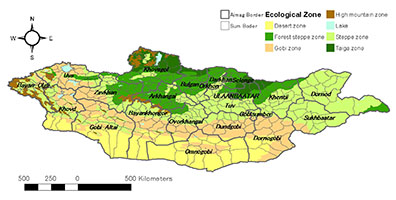
Development of Farming Monitoring System for Traceability
The objective of this project is to trace the farming crops by developing a crops monitoring system for farmers in Iiyama, Nagano. This system consists of sensors and web interface. Sensors can monitor the usual weather condition such as temperature, humidity, solar radiation, wind direction and speed by weather sensors, and also current situation by web camera. Additionally, we can monitor the activeness of the crops by calculating NDVI (Normalized Difference Vegetation Index) through invisible light sensors. In addition to these land sensor data, it becomes possible to see the statistics and other remote sensing data in our study area through our developed WebGIS interface.
(Person in Charge of the Project: Akihiro Oba)
URL: https://sites.google.com/site/walapj/
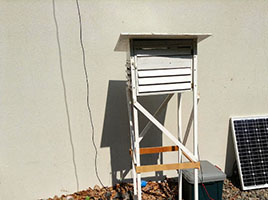
Development of a System Supporting PV Business through Local Communities
The Japanese government established a policy, Feed-in Tariff (FIT) in July 2011 and, as a result, has accelerated the demand for renewable energy. Solar energy is especially seen as a feasible way of providing benefits to local people with local resources, because it has high potential and accessibility. It is designed to accelerate investment in renewable energy technologies, however, it doesn’t have a policy mechanism to ensure local benefits from its use. Because of that gap, there is a risk of greater outflow of local resources. It is therefore necessary to encourage local firms and communities to enter the power generation market. In this view, this paper aim to develop a database for the feasibility study and to support solar energy entrepreneurs. This support system works for them who don’t have the know-how of this business. And then, it is expected to contribute regional vitalization.
(Person in Charge of the Project: Tomoki Kobayashi)
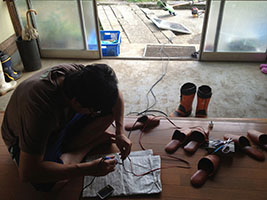
Study for Centralization of Urban Functions in Mongolia
Ever since the shift from a socialist country to a capitalist country, Mongolia has undergone dramatic change. For the case with agriculture, which was the country’s main market at the time, the ownership of livestock and responsibilities of herding suddenly changed from the government to the people, in this case the herders, thus creating new responsibilities to undereducated herders. Also with the rapid shift to a market economy, many herders increased the number of livestock, thus overgrazing the grassland area, which eventually lead to the desertification and vulnerability it is facing today. Now, many herders are at a new phase where they give up their lives as herders and move into the city, especially the capital Ulaanbaatar (where nearly half of the population is living), in search for a better life.
Our group discusses the case for herders moving into Ulaanbaatar by discussing the push factors of continuing life as herders, and the pull factors of moving into the city.
(Person in Charge of the Project: Sayuri Ichikawa)
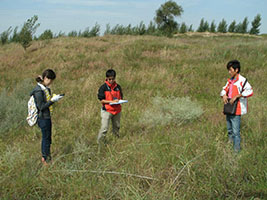
Organizing Opinions for Building Seawalls between Local Government and People in Koizumicho, Miyagi
Since being struck by a massive tsunami in the Tohoku region from the 3.11 earthquake in 2011, many areas are taking action in seawall construction projects. Though the construction of seawalls can provide more safety up to a certain level, its construction can have an impact on the environment and the community in that area, making it difficult for many areas to carry out the project smoothly. Our group focuses on the case in the Koizumi area, located in Kesenuma City, Miyagi Prefecture, discussing whether the seawall-construction project should be carried out or not through debating a number of times. Though the area is preparing for a 20 billion yen project, the shore is also extremely important in terms of marine and tourist attractions as it is famous for being the home for many rare species. Focusing on where the area should be headed, and what they should protect and preserve, our group raises the alarm through a mutual stance.
(Person in Charge of the Project: Tomoyuki Ikeshita)
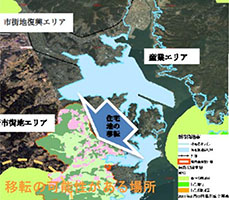
Media to Discover the Newness of the Town
We introduce the research on the media which tell the charm of a town.
In the “Ito fieldwork”, we introduce the measure of the information design which discovers the charm and the newness of a shopping street of Ito, and they are told through a poster. “MAPLetter” is the town guide media of the new way of thinking which connect a place and a feeling using a pattern language. “Dog camera” is the media which look at a town from eyes of a dog, and discover the charm of a town.
(Person in Charge of the Project: Emiri Nakano)
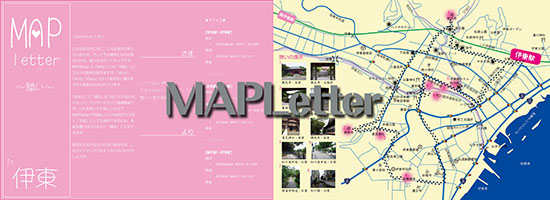
Japanese Entertainment Media
We demonstrate the media which make culture unique to Japan more pleasant with technology. “Osawari manzai” is an user participation type comic dialog which uses two mannequins, and is the media which make tedious waiting time pleasant. “fumbrella” is the vinyl umbrella media which stuck the picture shared on the network, and the sticker of the character, and we walk the street with it. “Penlight media” is the annotation systems which record a message in real time to a concert, and can share impression of a concert on a network.
(Person in Charge of the Project: Kazuma Hidaka)
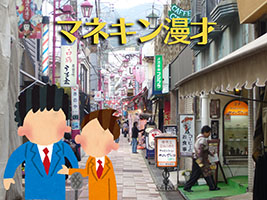
Connection Media of Music and Audio
We demonstrate the media which connect people, a person and a person, and a place by music or a speech technology. “Uwasa radio” is the media which make it possible to hear the rumor of a town which flows from a store, a building, or a signboard using a smart phone.
“30 seconds KARAOKE” is the media which invite people to a karaoke box by the short music which contributes to twitter. “Town walk music” is the town walk media by which the music for the time which the user inputted on the smart phone is generated.
(Person in Charge of the Project: Kousuke Miyasaka)
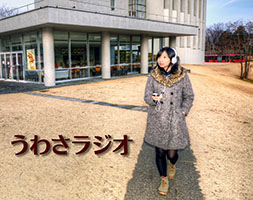
Voice Synthesis Technology
We introduce the voice synthesis technology used as the foundation of voice media.
* The project is related to the Joint Research with NIPPON TELEGRAPH AND TELEPHONE CORPORATION.
(Person in Charge of the Project: Katsuhiko Ogawa)
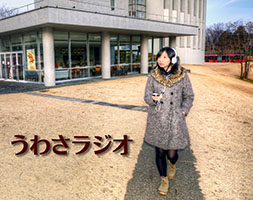
Personal Fabrication
The development of the technology has lead to the birth of innovating digital fabrication machines, such as 3D printers, laser cutters, and 3D CNC machines. In Hiroya Tanaka Laboratory, we use these new machines to make what we need or use personally. These products are very unique, and never seen in markets. In this booth, we will introduce some of the products that were made by a very personal motivation of the makers.
(Person in Charge of the Project: Keita Sekijima)

Environment Design Project
In order to make unique and creative products, not only do we need new tools to make them, but we even need a new environment to make these things. This booth introduces the attempts and examples of space to make something creative and unique, done by Tanaka Laboratory. We will also present the space design that was needed in order to accomplish the 9th International Fab Lab Conference in Yokohama this summer.
(Person in Charge of the Project: Koki Akiyoshi)
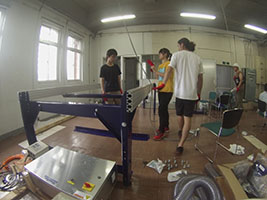
Software Design Project
The appearance of the new fabrication machines has lead to casual product design at a level that we had never imagined before. Now, we can make things that we never dreamed of. This situation has created an environment where we, users, communicate with software to make the product important than ever before. In this corner, we will introduce the new programs that are best for a fabrication of specific product.
(Person in Charge of the Project: Taisuke Ohshima)
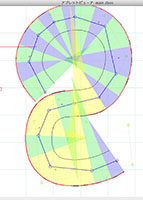
Machine Design Project
The creation of unique products demand tools and machines that never existed before. Inventing new tools has become easier due to the new digital fabrication tools. This booth shows the creative machines that was developed by the laboratory members, and we will also discuss the future of digital fabrication tools and fabrication itself.
(Person in Charge of the Project: Yuichi Hirose)
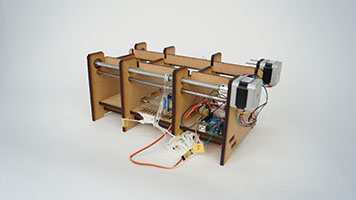
Algorism - (In)computability of Architecture
(To be announced)
(Person in Charge of the Project:Shohei Matsukawa)
URL: http://000lab.com
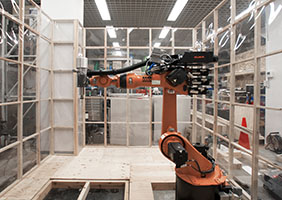
Researching in a Relation between a Change in States of River and Artificial Watercourses and a Structure of Basin Environment
The study discusses the management of urban rivers in the future. The main purpose of this study is clarifying a relation between urban rivers and its basin on the history. When the rapid economic growth in 1960′s-1970′s passed, most of urban rivers in Japan have lost roles of irrigation and water transportation. Recently urban rivers’ role is just a drain. In the future, redevelopment of urban construction and infrastructure dilapidated becomes required. This study considers how to use urban rivers as a good infrastructure.
(Person in Charge of the Project: Keisuke Shima)
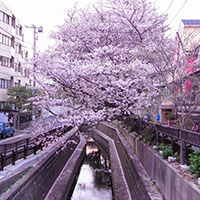
Hachikuma Project
Hachikuma Project is an open-to-the-public project of bird migration, the Oriental Honey Buzzard.
In spring and autumn, every year, bird migration attracts great interest of many people in Japan and other parts of the world.
The purpose of this project is to make public on the web the real time status of bird migration via satellite tracking, to show it to many people in Japan and other parts of the world, and then to deepen their understanding of bird migration and also of how nature works.
Which actual southward route do our tracked honey buzzards take? When and where do they arrive? How do they come back to Japan next spring? We would like to enjoy tracking them together with many people in the world.
(Person in Charge of the Project: Hiroyoshi Higuchi)

Passport for the Creative Society: Creating and Passing Down Ways of Creation
To achieve a society where we each create the future with our own hands, the Takashi Iba Laboratory is creating Pattern Languages to support the creative processes in people. In this exhibition, we will be exposing the “Good Old Future Patterns”. This is a Pattern Language created by mining ideas from traditional Japanese design. These “good and old” ideas can be then be applied to modern contexts to create new things which inherit the good qualities from the past – a “good old future”. In addition, we will also present two more new pattern languages: a pattern language for designing and creating a wedding, and a pattern language for creating clothing. Showings of film related to pattern languages will also be held.
(Person in Charge of the Project: Takashi Iba)
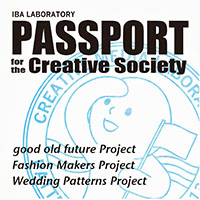
Proposing Oral History Project; Reorganize Local Information and Apply of City Planning
This project encourages the town, which was damaged by the earthquake and has decided to shift to high elevation. This activity’s goal is to make the system that keeps the elements of the original town. Our target area is Moune, Kesenuma City, Miyagi Prefecture.
We use the Oral History method (interview), to reorganize local information. We return the information to inhabitants and we encourage them to make the image of their town’s future. The project is placed as the start line for the support of disaster area.
(Person in Charge of the Project: Sho Ito)
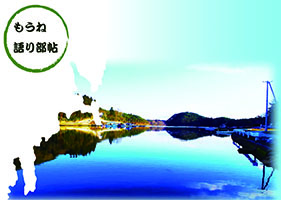
- Agriculture Group - The Visualization of Kesennuma City Agricultural Products and Promoting Agricultural Information
Kesennuma City is famous fisherman’s town in Japan, but farmers also exist a lot. Because most of Kesennuma’s farms are located in the hilly and mountainous land and influenced the tsunami, a difficult agricultural problem in Kesennuma is spreading to the current state. Our agricultural group created a Facebook page on its own, to perform the visualization of Kesennuma agriculture and agricultural products for Kesennuma citizens, and aimed to be interested in local agriculture even a little. Through agricultural discussion and questionnaire to the public, we will continue to analyze how change was born by the project implementation.
(Person in Charge of the Project: Hidenobu Takubo)
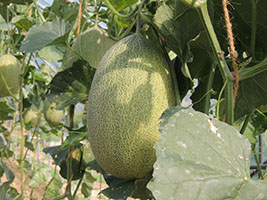
- IT Literacy Group - The Potential of Practical Use of Social Medias for Regional Vitalization in Kesennuma City, Miyagi
IT literacy group belonging to Kesennuma Reconstruction Project has been researching how people can form information and send them by using the social network system (SNS), especially by using the Facebook. We have been conducting survey at prefab shopping districts. For the research, we have interviewed people working at the shop and held some Facebook workshops to cultivate the power for understanding and using SNS to provide information of the shops to people elsewhere. In this year’s ORF, our group would like to introduce our activities and a project that we suggested to the shopping districts.
(Person in Charge of the Project: Hiroaki Yoshino)
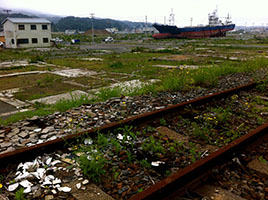
Cyber Sound Project (CSP)
Cyber Sound Project (CSP) is started in 1990 as a project to do research and creation of computer music. This project is the first attempt at a university in Japan, and came to the human resources produced to lead in this field.
(Person in Charge of the Project: Toru Iwatake)

Historical Contextual Urban Design in Fujisawa
Nakajima Laboratory Project is concerned on old Tokai Fujisawa post town which is the origin of Fujisawa City and on the past Tokai historical road. With the collaboration of Fujisawa City office, our laboratory is committed to the historical “matchi-zukuri” with community. Not only historical context of Edo era, our perspective is to look on periods before and after the periods such as Meiji era to find out the value of Fujisawa. From the findings of digging up variable historical resources from variable layered chronology, our laboratory targets to inspect contextual urban design at Fujisawa-post town.
(Person in Charge of the Project: Naoto Nakajima)
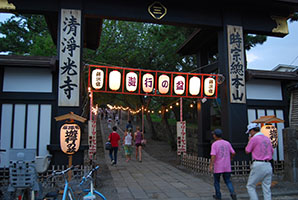
Urban Rural Redesign - 'Simple' Architecture Using Veneer Plywood -
Since 2011, Hiroto Kobayashi Laboratory has studied methods for ‘simple’ architecture that is easily assembled using veneer plywood.
Veneer plywood is used all over the world because of cheap price and easy to obtain.
Thanks to using prevalent lumbers such veneer plywood, people not having the knowledge of architecture such students or amateurs can build architecture easily.
In fact, we design and construct ‘Veneer house’ in Minamisanriku and in Maeamihama, ‘Learning center’ in Myanmar and so on. At ORF 2013, we exhibit model of ‘simple’ architecture and look forward people to understand possibility for the method of veneer plywood.
(Person in Charge of the Project: Hiroto Kobayashi)
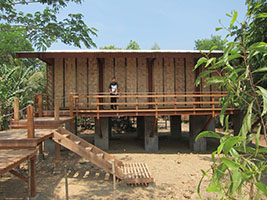
Design and the Speculative Mind
Currently, Daijiro Mizuno Laboratory of Keio University Shonan Fujisawa Campus is working on two projects, based on the “design research for the everyday practice of ordinary people” and “fashion design as socio-cultural phenomena”. One of them is thought of the new ways of selling, buying, creating, and telling the Fashion Design called “Dressmaking 2.0″. The other one is “bona fide design” which is replacing the inconvenience and malicious design to the social problem solution.
(Person in Charge of the Project: Daijiro Mizuno)
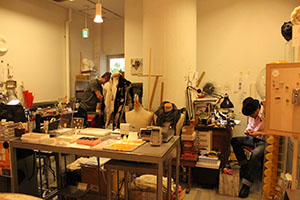
Reinvention of Urban Stocks in Maturing Society
Our laboratory carries out research on the reinvention of urban spaces in a maturing society leading practical activities through cooperation with local society. We will prepare 4 presentations; the Fujisawa 391 project revitalizing a combined commercial buildings of 1960-70s, the Ginza project reorganizing pedestrian experiences by cafés as resting places, the Fuji-Yoshida project rediscovering the cultural heritages relating to worship for Mt. Fuji as new resources for tourism, and the Oku-Asakusa project restoring places for community by pop-up installation.
(Person in Charge of the Project: Naoto Nakajima)
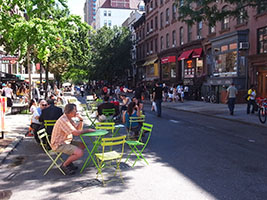
Revitalization Project in Kuchinoerabu Island
Kuchinoerabu Island, located in Kagoshima Prefecture, is having a huge problem with decrease of population, which is also happening in all over Japan. To find the way to solve this problem, our two laboratories collaborates together from educational and architectural point of view. Every summer we visit the island and open workshop and construction.
(Person in Charge of the Project: Yoko Hasebe)
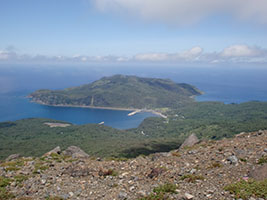
DR Congo "Acadex" Elementary School Project
This is a project to build and run an elementary school at Kinshasa in Democratic Republic of Congo, named ‘Acadex’. This project has reached its 6th year, organized by many people including Mr. Bedelo Simon, the founder of Acadex, members from the Yoko Hasebe Laboratory and so on along with the local people.
(Person in Charge of the Project: Yoko Hasebe)
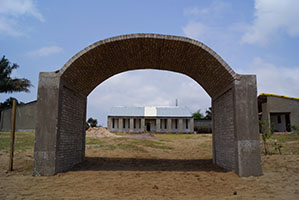
Authentication Systems with Lower Cognitive Load
We are suffering from serious flaws of existing authentication systems where users should always be afraid of losing something: forgetting passwords, losing authentication devices, etc. We introduce a password generation/management system where users should never worry about such concerns.
(Person in Charge of the Project: Toshiyuki Masui)
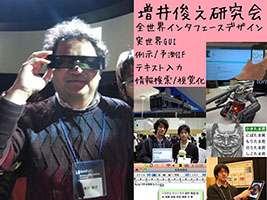
Software/Hardware Architecture for "Smart Living"
We introduce a new software/hardware architecture with which anybody can benefit from the computing resources available on the Internet at any place, including living environments like kitchens, baths, and street corners.
(Person in Charge of the Project: Sho Hashimoto)

Real-world Programming
We introduce an Web-based simple and powerful software architecture which enables flexible communication between distributed software systems and people. Using our framework, creating software for smart living environment becomes extremely easy.
(Person in Charge of the Project: Takumi Baba)

Visual Data Mining
We show various new visualization methods, filtering methods and interaction techniques for handling the “big data” on the Net.
(Person in Charge of the Project: Masaya Usuki)

HABI: Designing Interfaces for "Habilitating'' Senses
In Yasuaki Kakehi Laboratory, concerning on the relation between humans and real-world, we aim not only to support users but also to encourage to acquire (Habilitate) new skills or perspectives by information media. We develop novel interaction between human and real-world by mediating human’s bodies (Human), physical matters (Atoms), and information (Bits). This time, we propose sense habilitating media by supporting and expanding user’s creation or action.
(Person in Charge of the Project: Yasuaki Kakehi)
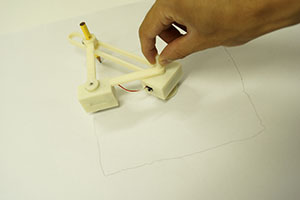
Material Interactions: Expressions with Physical Materials Augmented by Digital Information
In Yasuaki Kakehi Laboratory, we attempt to construct substantial information and interaction that does not remain inside screens by focusing on general and natural materials existing in the real world, taking advantage of their characteristics.
In this exhibition, we introduce interactive medias and information presentations using or extending color and deformable characteristics of materials.
(Person in Charge of the Project: Yasuaki Kakehi)

Harmonized Inter-Personal Display
As basing on the situation of multi-user information technology, we aim to develop technologies which overlap information to real-world with focusing on people’s intuitive understanding or face-to-face communications. For instance, we present our researches on supporting the experience at museums, classrooms or offices utilizing Augmented Reality technology such as a media for encouraging non-verbal communication or a tool for sharing people’s emotions.
(Person in Charge of the Project: Yasuaki Kakehi)
